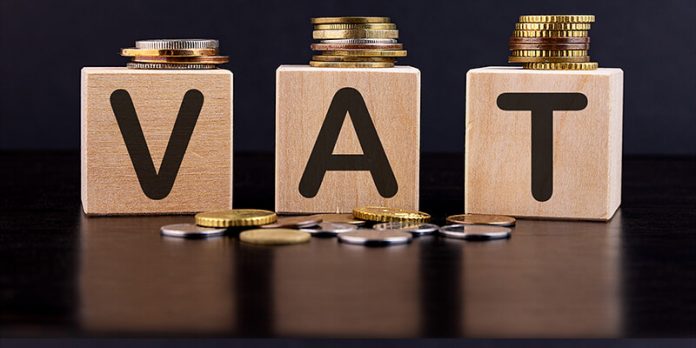Exploring Donor-Advised Funds: Benefits and Considerations

Digital Tools Every Modern Church Should Consider
June 7, 2025
How Gift Aid Can Help Fund Your Charity’s Unexpected Expenses
August 7, 2025In recent years, Donor-Advised Funds (DAFs) have become a key instrument in modern UK charitable giving, offering a flexible and strategic vehicle for philanthropy. Whether you’re an individual philanthropist or a family aiming to build a legacy of generosity, DAFs provide a streamlined way to support your favourite causes while unlocking significant financial benefits. But like any powerful financial tool, they come with important considerations.
What Is a Donor-Advised Fund?
A DAF is a charitable investment account that acts as an intermediary between a donor and a public charity. It facilitates philanthropic giving by allowing donors to make an immediate, tax-deductible contribution of cash, shares, or other assets. This can provide a significant advantage when filing taxes, particularly in a high-income year.
The funds are then held and invested by a sponsoring organisation—typically a public charity, such as the Charities Aid Foundation (CAF) or the National Philanthropic Trust UK (NPT UK). As the donor, you can then recommend grants from this account to qualified charitable organisations over time. This approach allows for strategic, long-term giving that can adapt to your philanthropic goals, ensuring your donations are allocated efficiently and in compliance with all regulations.
The Surging Popularity of DAFs in the UK
The use of DAFs is growing rapidly in the UK. According to the Charities Aid Foundation (CAF), the total amount of money donated to DAFs in the UK in 2023 was an estimated £852.6 million. Additionally, the total charitable assets held in UK-based DAFs reached a record £2.8 billion in 2023, representing a 10.7% increase on the previous year (Research from The 2024 DAF Report, NPT UK). This growth demonstrates their increasing adoption and importance within the UK’s philanthropic landscape.
Key Benefits of Using a Donor-Advised Funds
Here are the primary advantages that make DAFs such a compelling option for donors in the UK:
- Immediate Tax Relief
When you contribute cash, shares, or other assets to a DAF, you receive immediate tax relief for that tax year. This means you can offset high-income years by making a large donation to your DAF and then take your time deciding which charities to support. - Tax-Free Growth
Assets held within a DAF can be invested, and any growth they achieve is tax-free. This allows your charitable pot to grow over time, increasing the total funds available for distribution to charities and magnifying your philanthropic impact. - Simplified Administration
Instead of tracking numerous Gift Aid declarations and receipts from different charities, you receive a single tax receipt from the sponsoring organisation for your DAF contribution. This significantly simplifies your record-keeping and tax preparation. - Legacy and Family Philanthropy
DAFs are an excellent tool for engaging younger generations in charitable giving, allowing families to make philanthropic decisions together. You can also name successor advisors to continue recommending grants after your death, ensuring your charitable legacy endures. - Anonymity
DAFs provide an easy way to make anonymous donations. If you prefer to give without public recognition, you can recommend grants from your DAF without disclosing your identity.
How GoodtoGive Can Help You Maximise Your Charitable Impact
The growth of DAFs highlights a broader trend: donors are becoming more strategic about their giving. This strategic approach often goes hand-in-hand with maximising every donation’s value. This is where Gift Aid becomes critically important.
As a faith-based charity or church receiving donations, understanding and claiming Gift Aid is essential for maximising your income. For every £1 donated, your organisation can claim an additional 25p from HMRC. This is a significant revenue stream that many organisations miss out on or find too complex to manage.
At GoodtoGive, we understand that managing Gift Aid can be time-consuming and complicated. Our expertise is in simplifying this process for you. We provide bespoke Gift Aid management services that handle all the administrative burden, from data processing to submitting claims to HMRC. This ensures you can reclaim every penny you are entitled to, while saving you time and money.
Important Considerations
While donor-advised funds offer many benefits, it’s crucial to understand their limitations before committing.
- Irrevocable Donations
Once you contribute assets to a DAF, the donation is irrevocable. You cannot withdraw these funds for personal use. Ensure you are ready to make a permanent philanthropic commitment. - Control Limits
Although you can recommend where grants go, the sponsoring organisation has the final say. While they almost always follow the donor’s guidance, the donor technically no longer controls the funds. - Fees
DAFs typically charge administrative and investment fees, which vary between providers. It’s important to compare these costs to understand how they will impact your charitable budget. - Minimum Grant Amounts
Some providers have minimum grant sizes or account balances, which may affect how often or broadly you can give.
Is a Donor-Advised Fund Right for You?
DAFs are an excellent option for donors who want to:
- Maximise tax benefits in high-income years.
- Give over time rather than all at once.
- Simplify charitable giving and record-keeping.
- Engage in long-term philanthropic planning.
- Maintain flexibility and anonymity in giving.
However, if you’re looking for more direct control over how funds are managed and distributed—or if you prefer a direct relationship with the charities you support—you might explore other vehicles like private foundations or charitable trusts.
Contact GoodtoGive for Gift Aid Management
For faith-based charities and churches, maximising every single donation is a strategic imperative. While a DAF helps the donor, our expertise helps the charity. We ensure you’re claiming every pound of Gift Aid you’re entitled to, which can make a significant difference to your mission.
Our bespoke solutions save your organisation time and money and increase the efficiency of your day-to-day operations.
To learn more about our Gift Aid management service and to book a consultation, contact a team member today.





